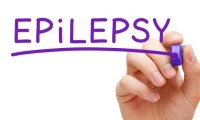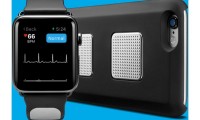-
AI funding tops $1 billion mark as mobile investments wane
- Source: Healthcare IT News
- 836
- January 19, 2018
-
This Company’s AI-Fueled Tech Is About to Bring Digital Health Care to Millions
- Source: Fortune
- 453
- January 18, 2018
-
Adapsyn Bioscience Completes Financing to Advance its Small Molecule Natural Product Platform and Pipeline; Announces Research Collaboration with Pfizer Inc.
- Source: globalenergymedia
- 543
- January 17, 2018
-
How doctors and bots can work together
- Source: Venturebeat
- 540
- January 10, 2018
-
How to Keep Health Data Safe in the Age of Disruptive Technologies
- Source: HealthTech Magazine
- 559
- January 4, 2018
-
The Healthcare Technology Winners of 2017
- Source: hcanews
- 492
- January 1, 2018
-
Surgical Device Company Virtual Incision Raises $18 Million in Series B
- Source: xtalks
- 568
- December 18, 2017
-
Personalised epilepsy seizure prediction a possibility with AI
- Source: medicalxpress
- 655
- December 7, 2017
-
FDA Clears First Medical Device Accessory for Apple Watch®
- Source: Prnewswire
- 542
- December 4, 2017
your submission has already been received.
OK
Subscribe
Please enter a valid Email address!
Submit
The most relevant industry news & insight will be sent to you every two weeks.













